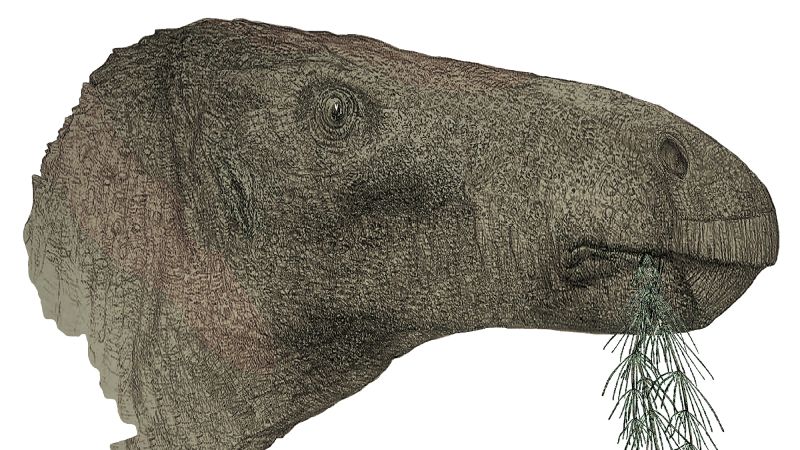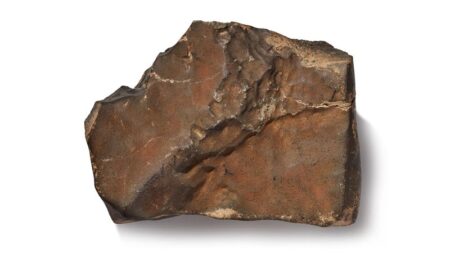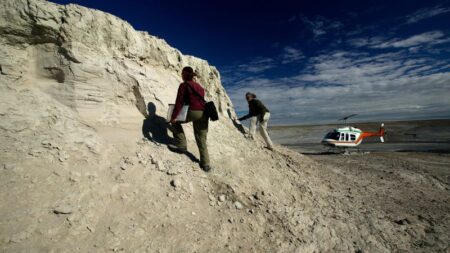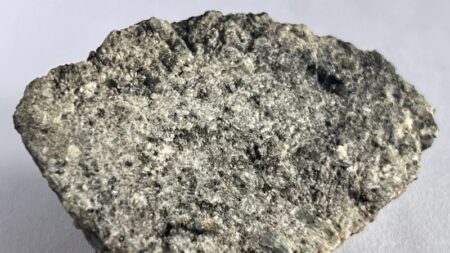In a recent study conducted by Jeremy Lockwood, a doctoral researcher at the University of Portsmouth in the UK, a new species of plant-eating dinosaur has been discovered on an island off the south coast of England. This dinosaur, estimated to be the size of a large American bison and weighing around a ton, roamed the Earth approximately 125 million years ago. Lockwood also noted that fossilized footprints found near the skeleton suggest that this dinosaur may have been a herding animal, possibly roaming in large herds on floodplains.
The fossil, which consists of 149 bones, was unearthed on the Isle of Wight back in 2013, making it the most complete dinosaur skeleton found in the UK in over a century. The bones were discovered by local fossil collector Nick Chase, who sadly passed away from cancer in 2019. Lockwood praised Chase’s talent for finding dinosaur bones, comparing him to the renowned paleontologist Mary Anning. In honor of Chase and the location where the skeleton was found, the new dinosaur species has been named Comptonatus chasei.
Researchers identified unique features of the skeleton, such as its jaw and particularly large pubic hip bone, that led them to determine it belonged to a new dinosaur species. Lockwood described the discovery as “a remarkable find” that sheds light on the diversity of dinosaurs in England during the Early Cretaceous period.
Mike Greenslade, general manager of the conservation charity National Trust on the Isle of Wight, lauded the discovery as “extraordinary,” highlighting the island’s significance in paleontology. He emphasized the importance of preserving landscapes for future generations to explore and learn from, highlighting Chase’s remarkable discovery and Lockwood’s dedicated research as evidence of the rich history waiting to be uncovered on the island.










